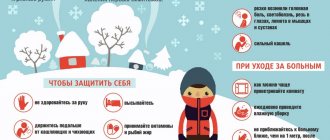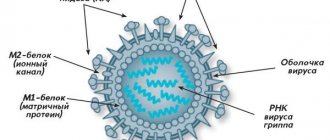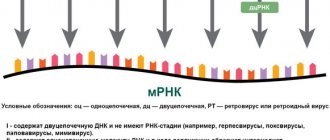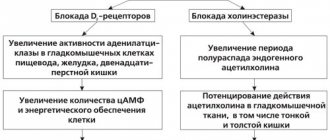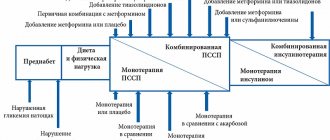Bird flu: what is dangerous, how not to get infected
Bird flu: what is dangerous, how not to get infected.
WHO experts, in their appeal to the global medical community, offer information that can be regarded as a warning, as recommendations for protection against real danger.
Avian influenza is an infectious disease of birds caused by one of the strains of the influenza virus type A. It was first identified in Italy more than a hundred years ago and is found everywhere. All birds are thought to be susceptible to this infection, although some species are less susceptible than others. Migrating waterfowl - most commonly wild ducks - are the natural reservoir of avian influenza and are the least likely to become ill from the infection. At the same time, poultry, including chickens and turkeys, are especially susceptible to epidemics of this fast-spreading, deadly flu. The avian influenza virus usually affects only birds and pigs. A study of the history of influenza pandemics has shown that they can occur on average three to four times per century when a new subtype of the virus emerges and spreads rapidly from person to person. However, the occurrence of an influenza pandemic is unpredictable. In the twentieth century, the biggest pandemic, i.e. spread of the virus throughout the world, recorded in 1918-1919. It caused the death of 40-50 million people.
One of the most important features of influenza A viruses is the variability of their antigenic and biological properties. The spread of infection among birds increases the likelihood of direct transmission to humans. WHO experts report some properties of avian influenza viruses: they die during heat treatment (over 80 degrees), as well as from the action of conventional disinfectants, including formaldehyde and iodine-containing drugs, but they are well preserved when frozen and can survive in frozen bird carcasses for up to a year . A person can become infected by eating poorly cooked meat, or through dirty hands after cutting infected birds. If, over time, more people become infected, the likelihood will increase that these people, if they are simultaneously infected with strains of human influenza, will become mixing vessels. Then a new subtype of virus may emerge with enough human influenza virus genes to be easily transmitted from sick to healthy people through airborne droplets. If this happens, a pandemic could occur. According to a forecast prepared by the US government Center for the Prevention and Control of Infectious Diseases in Atlanta, if the new strain of bird flu H5N1 becomes infectious to humans, the world will face an unprecedented global epidemic - a pandemic, and 80 million will get sick and die in the US alone 16 million people.
The most reliable way to protect against influenza infection is vaccination with a specific anti-influenza vaccine. According to the calculations of Russian scientists, a vaccine against bird flu will be created in Russia in 2006. At the same time, vaccination with currently existing vaccines will help, if not protect, then reduce the likelihood of infection in people and the risk of gene exchange. In addition to vaccines, the arsenal of preventive (and therapeutic) drugs includes specific antiviral drugs: rimantadine, arbidol, Tamiflu, Interferon, oxalic ointment, amixin. To prevent influenza and ARVI, as well as strengthen the body’s defenses, so-called immunocorrective drugs are recommended: Eleutherococcus extract, Aralia tincture, Immunal, vitamins.
Any doctor will tell you that the flu has serious complications. Against this background, pneumonia, meningitis, otitis media, sinusitis can develop, and chronic diseases can also worsen. Therefore, when the first symptoms of influenza occur, bed rest, plenty of warm drinks and light food, and antipyretics are indicated. Flu in the home dictates the following mandatory actions:
for the patient:
* call a doctor at home;
* refrain from decisively combating high fever: precisely when
at a temperature of 38-390C, the virus dies and specific antibodies are more actively produced;
* do not take antibiotics and sulfa drugs: they do not affect the influenza virus;
* drink hot tea and other drinks, maintain bed rest;
* follow the doctor's recommendations.
for family members:
* if possible, isolate the patient, limit close contact with him, wear four-layer gauze bandages, periodically ironing them with a hot iron;
* ventilate the premises more often, after covering the patient warmly;
* allocate dishes to the patient and wash them separately with hot water;
* wash handkerchiefs, towels, underwear and bed linen of the patient after preliminary boiling;
* carry out daily wet cleaning of rooms;
* take medications intended to prevent influenza.
Flu and COVID-19: distinguish, cannot be confused
What are the chances of distinguishing flu from “covid” based on symptoms alone? Why is only influenza included in the exclusion recommendations in parallel with COVID-19? And what tests can be used for this?
Smell, pain and others
One of the most popular symptoms is undoubtedly the loss of smell.
Many infected people note its appearance during illness. And for others, this is practically the only sign.
In fact, of course, you shouldn’t rely only on the loss of smell. After all, although the symptom occurs in 75-80% of patients, it can also accompany a number of other ARVI pathologies.
Other distinguishing signs of Covid from influenza include:
- long incubation period - from 2-14 to 29 days, versus several hours - three days - in the case of influenza;
- weak temperature reaction at the onset of the disease or its complete absence, versus severe fever with influenza;
- absence (or weakness) of headaches and muscle (body aches) pain during illness, as well as pain in the eyes, characteristic of the flu;
- “feeling down” weakness, more characteristic of covid infection.
With regard to a runny nose, sore throat and cough, both infections do not have a clear clinical picture and are more often characterized by a moderate manifestation of these symptoms.
At the same time, the “specificity” of the listed signs, despite their prevalence, is still quite low. After all, for example, headaches are a common “phenomenon” in people who are “meteosensitive” or have vascular diseases.
Muscle and joint pain may be present without the flu, in the presence of rheumatic and some other pathologies.
And the nature of the temperature reaction depends on the individual characteristics of the immune system and the presence of immunodeficiency states.
At the same time, both pathologies, unlike “ordinary” acute respiratory viral infections, are associated with the so-called “cytokine storm” and severe multisystem complications, including damage to the lungs, kidneys, cardiovascular system and brain. And also a high risk of death.
In addition, Rospotrebnadzor warned back in August of this year about the expected “mixed season” of coronavirus and influenza, when both dangerous viruses would circulate in the population at the same time.
Therefore, if any “non-standard” and/or suspicious ARVI symptoms appear, as well as after contact with an infected person, simultaneous testing for both COVID-19 and influenza is recommended.
Which analysis is appropriate?
If possible “options” for coronavirus diagnosis are quite widely known to the population. However, awareness regarding influenza is much lower.
In fact, identifying influenza at an early stage of infection is virtually no different from that for coronavirus infection. And the same PCR is used as a diagnostic method, and the material used is the same swab from the throat and nose.
The only difference is the “breadth” of the study, where, unlike coronavirus, the presence of not one, but several types of influenza (A and B) is examined.
Causes
In nature, the main reservoir of avian influenza is migratory wild migratory waterfowl, as well as domestic birds. The virus is found in the digestive tract of birds and is excreted in the feces.
Infection can occur in the following cases:
- If a person comes into contact with infected birds (in factories, households, zoos, etc.).
- From bird droppings - through contaminated objects and hands.
- From dead birds.
The disease is not transmitted from person to person.
Pathogenesis
When infected with the influenza virus, selective damage to the epithelium of the respiratory tract occurs. When viruses multiply in columnar epithelial cells, they gradually cause their degenerative changes. Host cells are used to build new viral particles. Since the replication of the H5III virus occurs not only through epithelial cells of the respiratory tract, but also through intestinal epithelial cells. Therefore, the disease can manifest itself not only as catarrhal syndrome, but also as damage to the gastrointestinal tract.
The influenza virus causes cytopathic, vasopathic and immunosuppressive pathomorphological changes. The causative agent of influenza, virus type A, is more stable in the environment than the human virus. It can survive in bird droppings for about 3 months, can tolerate low temperatures well, but dies under the influence of disinfectants. It is characterized by high contagiousness and variability.
Treatment with folk remedies
Bird flu is a dangerous disease that requires treatment in a hospital and under the supervision of a doctor. Therefore, in this case we are not talking about treatment with folk remedies. Their use is possible already at the stage of rehabilitation after illness. During this period, it is recommended to use the following means:
- General strengthening herbal teas - they can be prepared from chamomile flowers, lingonberry leaves, blueberries, raspberries, sage, mint, etc.
- It is useful to prepare decoctions of rosehip and hawthorn berries.
- It is recommended to consume 1 tsp of natural honey every day. twice a day,
- A remedy made from dried fruits and nuts is useful. To prepare it, you should chop and mix 100 g of raisins, dried apricots, walnuts, mix, add 50 ml of honey. Keep the product in the refrigerator, consume 2 tbsp. l per day.
Prevention of bird flu
To minimize the likelihood of contracting bird flu, you should take the following precautions:
- Handle poultry and eggs thoroughly. To do this, you need to heat the food to 55-65 degrees for half an hour.
- After treatment, you need to wash your hands well with soap for 15-20 seconds.
- It is better to have a separate board for cutting meat. Dishes should be washed under hot water and detergents.
- Use a food thermometer to ensure the desired temperature is maintained.
- Don't eat raw eggs.
- Do not communicate with people who are suspected of having the flu. If contact does occur, then you should monitor your health and immediately consult a doctor when the first symptoms appear.
- Take antiviral medications and vitamin complexes.
- During an epidemic, wear a gauze mask.
- When traveling to a country where cases of bird flu infection occur, it is worth getting vaccinated, and if possible, it is better to reschedule the trip.
Tests and diagnostics
- After the patient contacts the doctor, the specialist must determine whether the patient has had contact with potentially infected birds or traveled to regions with an increased risk of disease transmission.
- When listening to the patient, wheezing and harsh breathing are detected.
- An X-ray examination is carried out, where instantly spreading infiltration is determined.
- Laboratory tests are also carried out. A blood test demonstrates a decrease in lymphocytes , leukocytes , and platelets .
- An RT-PCR analysis is carried out, for which a swab is taken from the nose or throat.
- Sputum and endotracheal aspirate samples can also be taken for analysis.
If a case of avian influenza is confirmed or suspected during the diagnostic process, it is reported to the Centers for Disease Control and Prevention.
Diet
Diet for influenza, ARVI, colds
- Efficacy: therapeutic effect after 4-7 days
- Terms: 5-12 days
- Cost of products: 1500-1600 rubles per week
- The diet of a patient infected with this disease should be light, but at the same time rich in vitamins.
- It is extremely important to drink plenty of fluids to replenish fluid losses and prevent dehydration.
- You should eat in small portions, doing this 5-6 times a day.
- The menu should contain protein products (poultry, rabbit), fish, stewed and fresh vegetables, and fruits.
- It is recommended to drink fruit drinks and compotes, decoctions of dried fruits.
General information
Bird flu is a rare, but very dangerous human disease that is caused by strains of influenza type A. As a rule, they affect domestic and wild birds.
But relatively recently, infections caused by these strains have also been recorded in humans. Most cases of this disease in humans have been caused by the Asian strains of influenza H5N1 and H7N9 . Interestingly, if wild birds become infected with these strains, the disease occurs without symptoms, while poultry may die.
Human infection with H5N1 was first identified in Hong Kong in 1997. However, people experienced severe respiratory symptoms and a high mortality rate. A few years later, cases were recorded again - mainly in Asia and the Middle East. There have been periodic outbreaks of bird flu in China.
How avian influenza manifests itself in humans and how this disease should be treated will be discussed in this article.
Consequences and complications
The disease can cause the following complications:
- Viral pneumonia.
- Damage to internal organs - liver, kidneys, etc.
A higher risk of complications is observed in the following categories of patients:
- Children under 5 years old, elderly people.
- Patients who were not hospitalized immediately after the onset of the disease.
- People who have weakened immune systems .
- Patients with chronic illnesses (heart disease, diabetes ).
